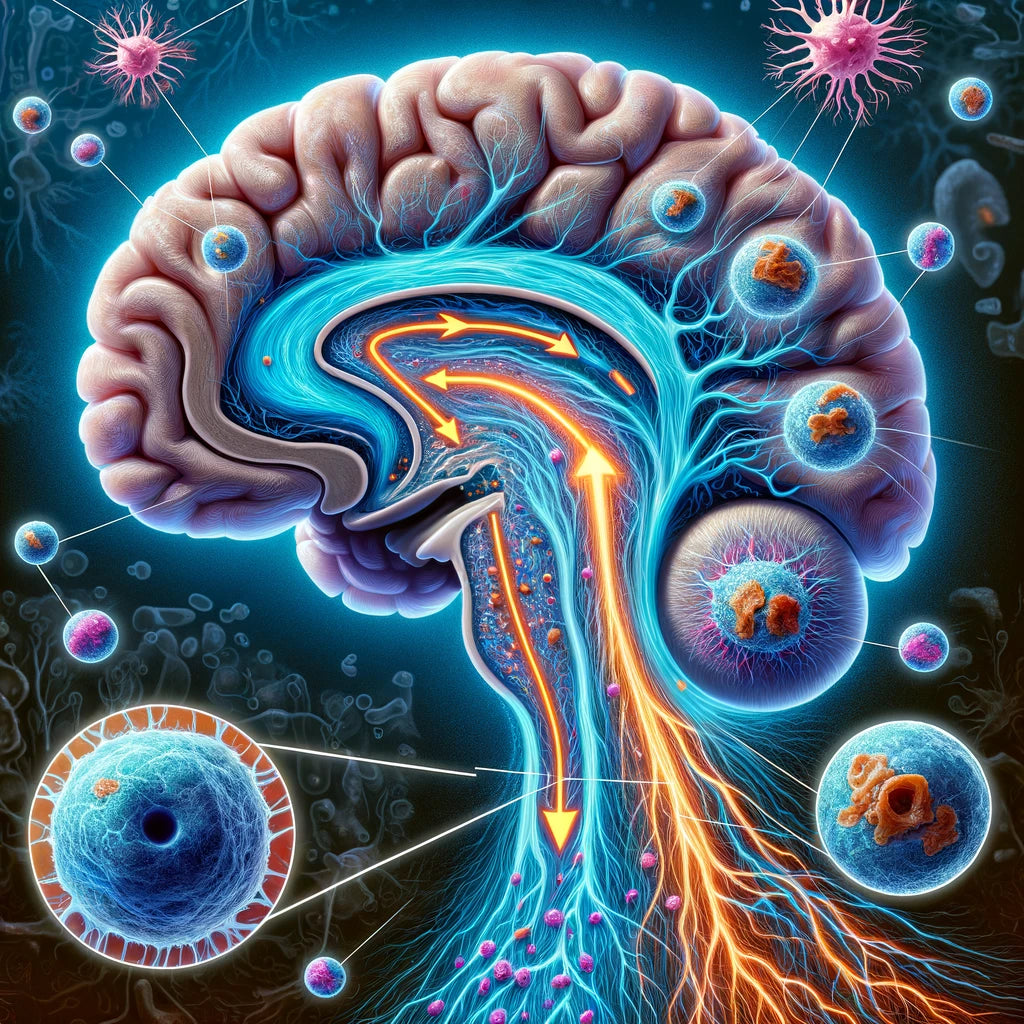News — neurodegenerative diseases
Regenerating the Brain: Stem Cell Therapies for Neurological Disorders
Alzheimer's treatment brain regeneration neural stem cells neurodegenerative diseases neurological disorders regenerative medicine stem cell therapies stem cells for Parkinson's
Stem cell therapies are transforming the treatment of neurological disorders, offering hope for brain regeneration and recovery. This article explores how these cutting-edge treatments work, their benefits, and the challenges they face.
Discover the potential of stem cells in treating conditions like Parkinson’s, Alzheimer’s, and spinal cord injuries. Learn about their applications, scientific breakthroughs, and what the future holds for brain regeneration.
The Impact of Antioxidants on Cognitive Function: Boost Your Brain Health
anti-inflammatory diet antioxidant-rich foods antioxidants brain antioxidants Brain Health brain inflammation brain protection cognitive decline cognitive function cognitive health flavonoids free radicals healthy aging memory support mental agility neurodegenerative diseases omega-3 fatty acids oxidative stress supplements for brain health vitamin C vitamin E
Cognitive health is essential for maintaining a high quality of life, especially as we age. Our brain, like any other organ, is susceptible to the damaging effects of oxidative stress. This occurs when there’s an imbalance between free radicals and antioxidants in the body, leading to cellular damage. Over time, oxidative stress can impair cognitive function, contributing to memory loss, decreased mental agility, and even neurodegenerative diseases such as Alzheimer’s.
Antioxidants, found abundantly in fruits, vegetables, and certain supplements, play a crucial role in combating oxidative stress. By neutralizing free radicals, these powerful compounds help protect the brain from damage, supporting mental clarity, memory, and overall cognitive function. In this article, we will explore the profound impact of antioxidants on cognitive health, delving into the science behind their benefits and how you can incorporate them into your daily routine.
The Role of Glymphatic System in Neurodegenerative Diseases
alpha-synuclein Alzheimer's disease Alzheimer's prevention amyloid-beta clearance brain detoxification Brain Health brain health interventions brain waste removal cerebrospinal fluid glymphatic dysfunction glymphatic function glymphatic pathways glymphatic research glymphatic system neurodegeneration neurodegenerative diseases Parkinson's disease Parkinson's treatments sleep and brain health sleep quality
The glymphatic system is an essential component of the body’s waste-clearing mechanism, especially within the brain. It operates like a network of channels that allows cerebrospinal fluid to flush out harmful waste products from brain tissue. Given the importance of maintaining healthy brain function, the glymphatic system's ability to efficiently remove metabolic waste is vital. In recent years, its connection to neurodegenerative diseases, such as Alzheimer’s, Parkinson’s, and other forms of dementia, has become an intense area of research. Understanding how the glymphatic system operates and its potential dysfunction could open up new avenues for treatments targeting brain health.
As we age, the efficiency of this waste-clearing system can decline, contributing to the buildup of proteins and other toxins in the brain. Many neurodegenerative diseases are linked to these accumulations, leading scientists to speculate that an impaired glymphatic system may be a contributing factor. In this article, we’ll explore the function of the glymphatic system, its mechanisms, and how its impairment might be involved in the development of neurodegenerative diseases. We’ll also look into emerging research on therapies aimed at improving glymphatic function to combat brain disorders.
Can Intermittent Fasting Improve Brain Health?
autophagy Brain Health cognitive function fasting benefits fasting tips inflammation insulin sensitivity intermittent fasting intermittent fasting types ketosis memory improvement mental clarity mood regulation neurodegenerative diseases neurogenesis oxidative stress




